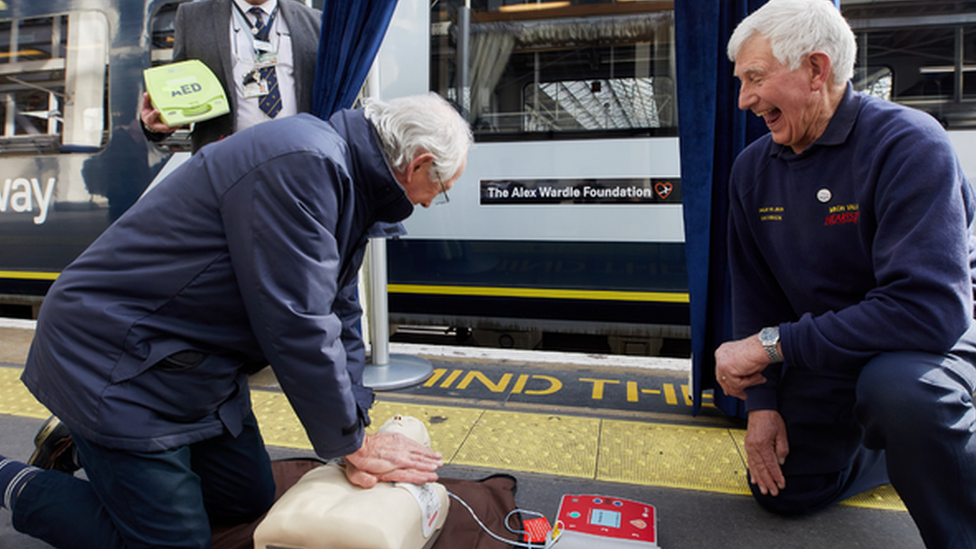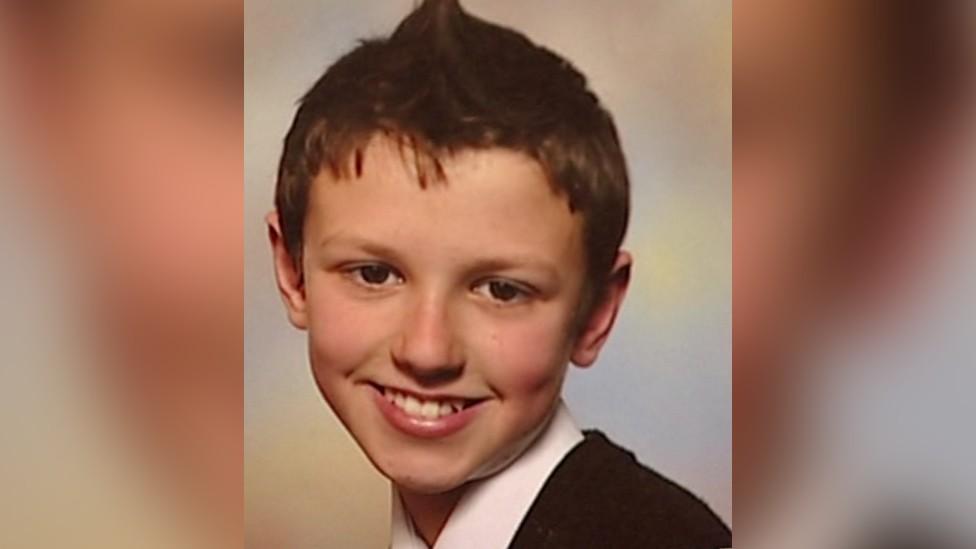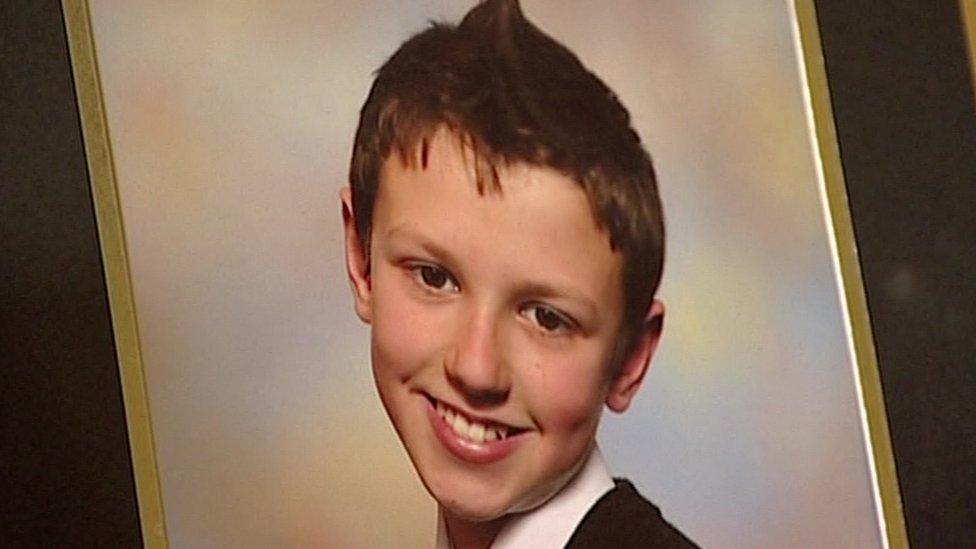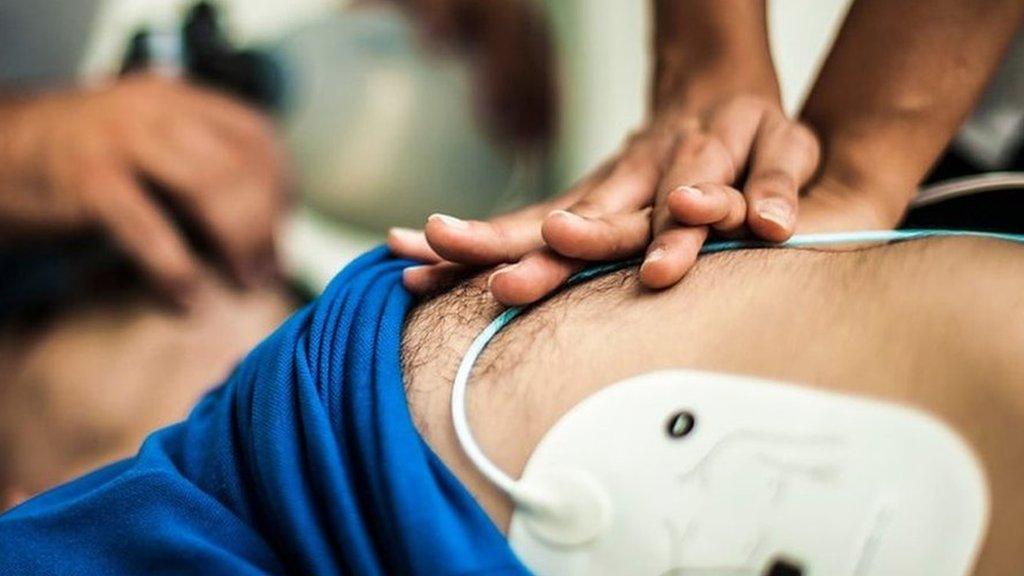South Western Railway installs life-saving defibrillators at stations
- Published

Steve Wardle and other members of The Alex Wardle Foundation took part in defibrillator training at a train-naming event
One of England's largest train operators is installing defibrillators at staffed stations across its network.
By the end of the summer, members of the public and staff will have access to the life-saving equipment at 154 South Western Railway (SWR) locations.
SWR, which has stations in south-west London, Surrey, Hampshire, Berkshire, Dorset, Wiltshire, Somerset and Devon, is investing £500,000 in the project.
It comes as SWR named a train in honour of the Alex Wardle Foundation.
The charity was set up in memory of Alex Wardle, a medical student and son of an SWR operations trainer, who died from sudden arrhythmic death syndrome (SADS) in March 2016.
SWR has partnered with the charity to help raise awareness of the syndrome, which sees someone die suddenly and unexpectedly from a cardiac arrest - particularly young, apparently healthy, people.
Alex's father Steve Wardle has worked for SWR for 38 years and set up the charity to help further understanding and prevent deaths from the condition.
Speaking at the naming ceremony at London Waterloo station on Tuesday, Mr Wardle said: "Defibrillators save lives and I hope that one day, if needed, it will save someone and their family true heartbreak."
How to use a defibrillator and save a life
The defibrillators will be housed in protective cases close to station entrances and will be available day and night.
The British Heart Foundation (BHF) estimates about 30,000 out-of-hospital cardiac arrests occur every year in the UK, and just one in 10 people survive.
Station staff and local ambulance services will be provided with the codes to unlock the cabinets to access the machines.
The locations will also be added the BHF's database, making them visible to NHS ambulance services who can direct 999 callers to their location.
The rollout began this month and is expected to be competed in the summer.

Follow BBC South on Facebook, external, Twitter, external, or Instagram, external. Send your story ideas to south.newsonline@bbc.co.uk, external.
- Published17 July 2022

- Published18 March 2022

- Published23 August 2021
